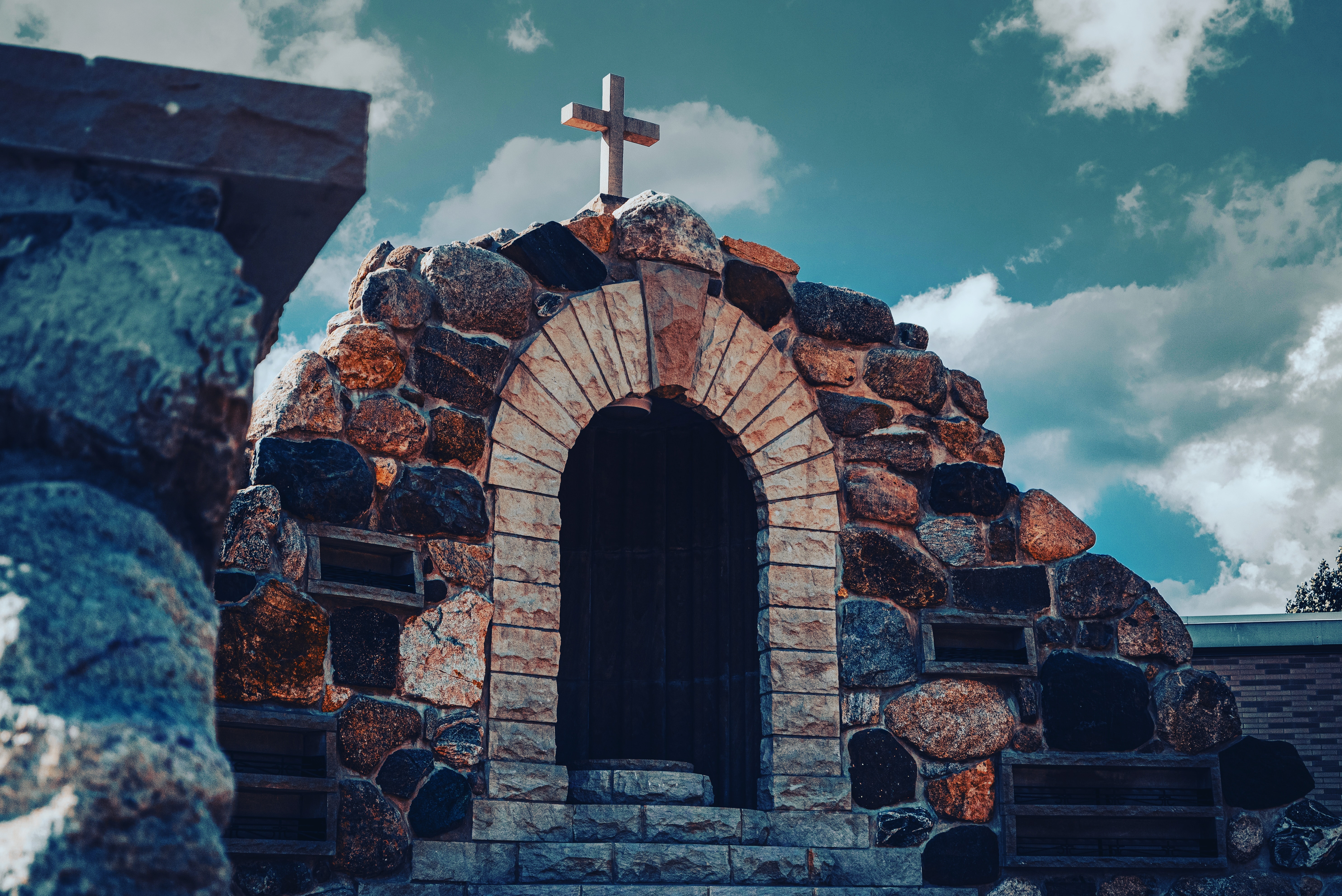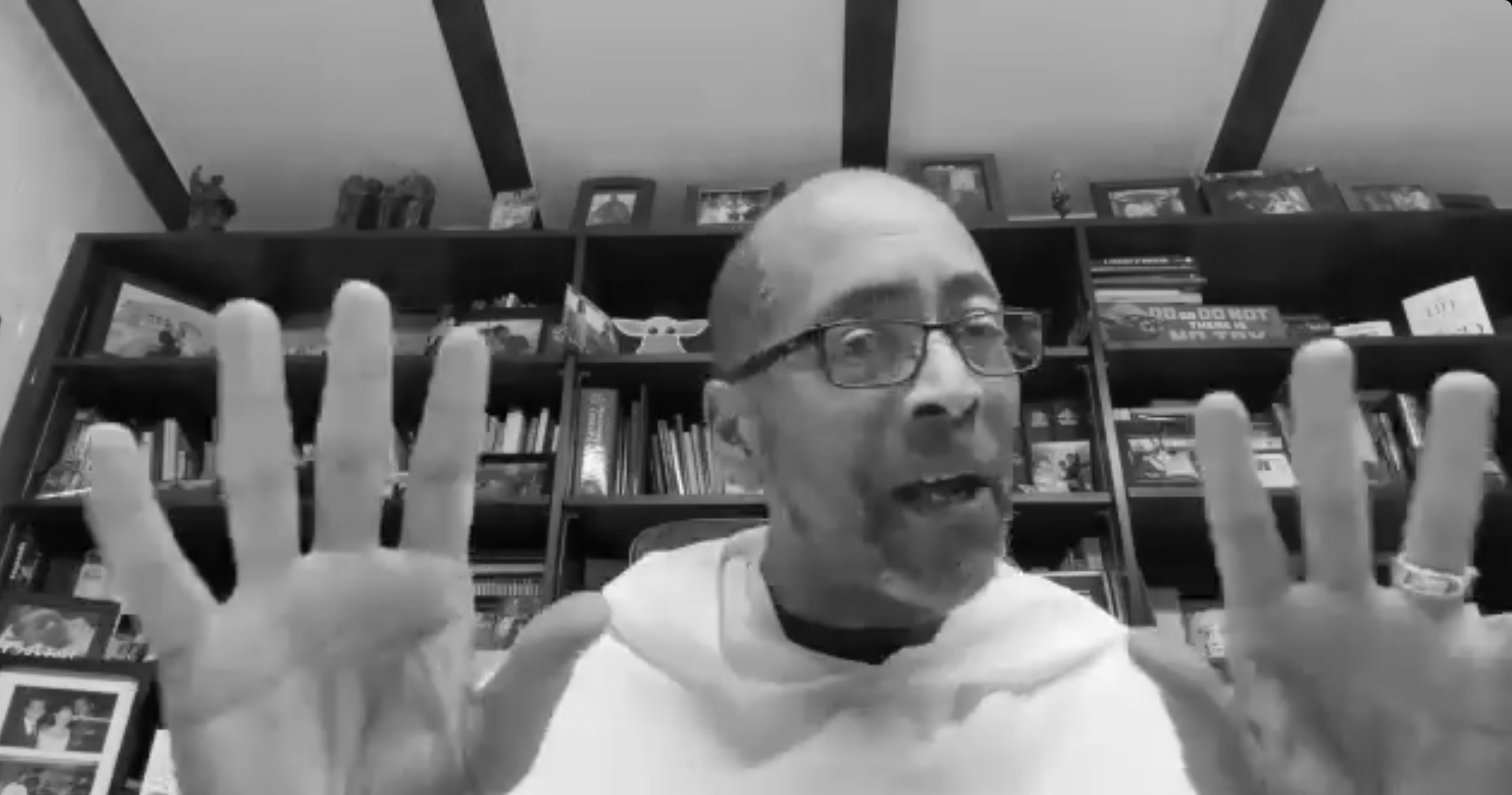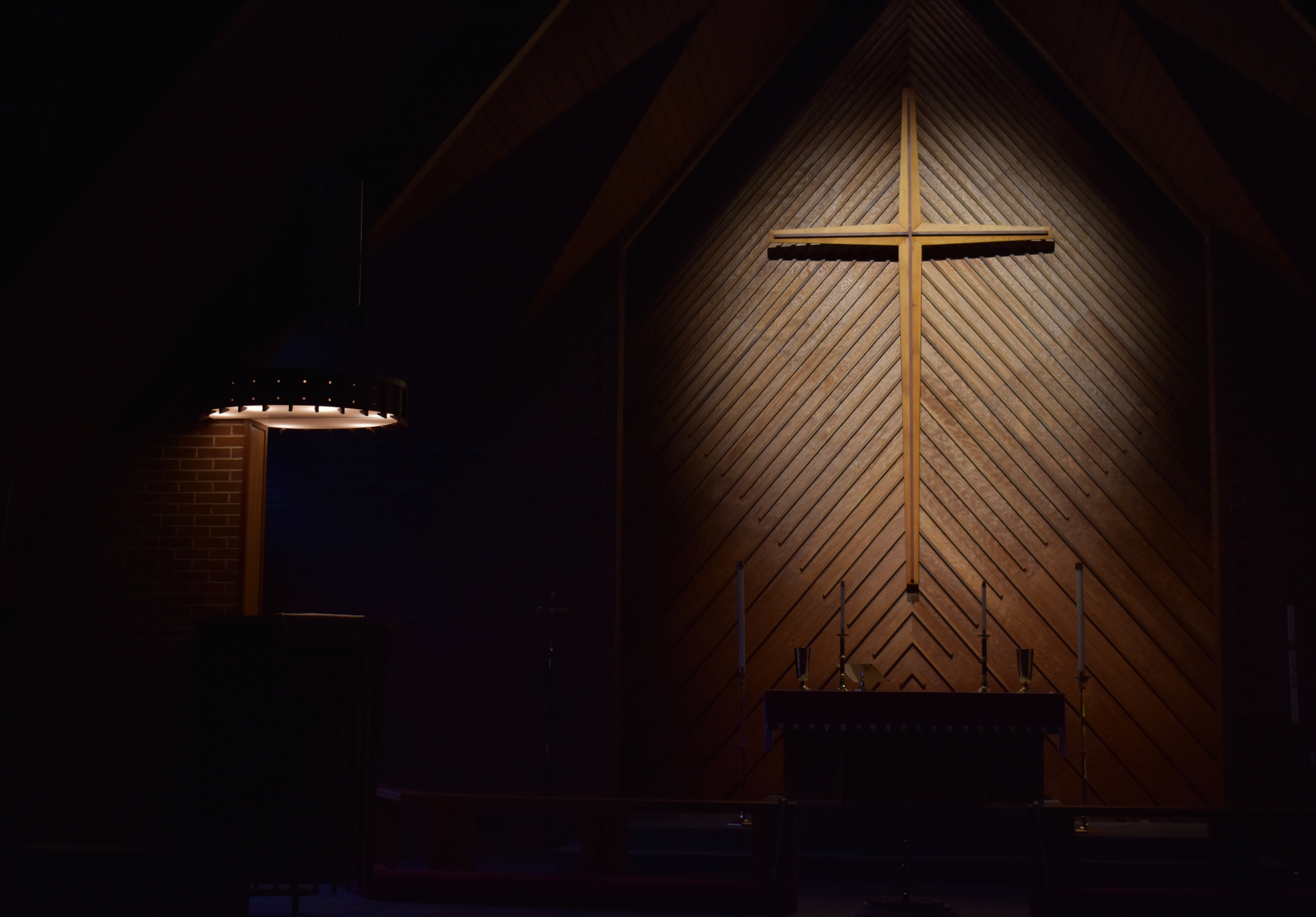"And so I think the thing that I discovered very, very quickly was that you have to be present to people and to kind of see what they need"
In this episode, Fr. John Paul Forté shares his transformative approach to campus ministry. He emphasizes the crucial role of accompanying students on their journey of intellectual, personal, and spiritual growth.
Fr. Forté reflects on his experiences adapting to diverse campus environments and collaborating with university services to provide effective spiritual and pastoral counseling. He delves into his faith-based ministry strategies, shares impactful personal stories, and highlights his student ministry program.
Join us as we explore the profound value of campus ministry and the importance of building meaningful relationships with students and faculty. Whether you're involved in campus ministry or simply interested in the impact of faith in education, this episode offers valuable insights and inspiration.
The following are edited excerpts and outline of the conversation from this podcast interview.
[00:00:13] When you started working at the St. Thomas Moore Catholic Newman Center at the University of Arizona in Tucson, you’re working with this group of college students, this specific age group, at this specific point in their lives, what was your approach in responding and reaching out to these college students?
I think that, so I’m a Dominican friar of the Western Dominican province and our province for many years has always had a commitment to campus ministry or university chaplaincy, whichever you prefer. And I think that it’s a very important time in young people’s lives. I remember years ago, when I was studying psychology I remember Erickson’s different stages of development and I remember one of his stages was, I think, it was the one that followed right after high school, I think high school was always, oftentimes, about that identity formation. But then the stage that follows after that is 18 to 28 and that’s all about intimacy versus isolation. And he postulated that when people head to college particularly or to maybe trade school or working right away, what can happen sometimes is that they charge into it with whatever identity that they formed in high school.
So whatever that identity is, they charge into the next level of their life. And then if they can integrate through their college years, what they’re doing in the classroom, what they’re experiencing outside of the classroom, if somehow they can integrate those things in a healthy way, they achieve intimacy which comes from a word that means self-acceptance or acceptance. But if they don’t, they isolate. And that has totally been my experience of university ministry. Like, you see, young people, maybe they were super involved, maybe in their faith or in a number of programs in high school and sometimes they come to college and it’s like this, larger atmosphere. It’s like an ocean of wider experiences and they get really challenged because everybody that you’ve ever known is challenging your beliefs.
And I remember, like when I was a college student…one of these introductory courses like humanity, and it’s one where you hear “oh, well you know that Adam and Eve story, well you know that’s not quite how it happened.” And then young people can be absolutely traumatized by that because when you’re, sometimes depending on your level of religious catechesis whether you’re a Catholic, Christian or whatever, it all depends on how much you continued that. And oftentimes people kind of remember the big things but not always the other things. And so they come into college and all of a sudden they get challenged and if they don’t know how to respond to that they can kind of pull back.
But I just say thanks be to God for university work because it respects the fact that young people are in institutes of higher learning, it respects that they’re in a period of discernment trying to figure out what they want to do with their lives professionally, but also just, but also it’s going to say that they’re going to grow in terms of their own human development and spiritual development. And I think what I really enjoy is to be able to say that your human development, your professional development, your personal development, and your spiritual development can all work together. And I think I just love and deeply enjoy that process.
I was, when I was first ordained I worked…in San Francisco and it was a kind of this inner city parish but inner city in a very interesting way. I don’t know if you’re familiar with San Francisco but the district, it was called the Western Addition and so on the one level, like when I was there, like you had kind of a more depressed community right up against a very opulent community. And then you have this gigantic 4th century French Gothic church with the buttresses right there, right in the midst of all this. And it’s this incredible intersection of just kind of old, sort of old San Francisco money and kind of young adults that are kind of yuppified, and then people just kind of transitioning, but also kind of a poor community. And in our parish, like we had a community service department, was one of the Dominican sisters who basically had an outreach program. Just like a day program because she felt like so many people have programs for people, homeless people, for breakfast but also for dinner but nothing really during the day. So she established this drop-in center.
So the first experience of that parish as a newly ordained priest was such, was so valuable for me because I felt like I went through tons of experiences that really really stretched me. And then after that assignment of 3 years, then I went to Stanford University because the Dominicans we were, we were starting to do campus ministry there…I was there for six years. That was really kind of a tremendous experience of campus ministry, and of course, Stanford, this Ivy League School, but yet even in Ivy League Schools you have human beings. Students that are trying to, again like I was saying, negotiate that path of just whatever identity was formed in high school, bringing that into the wider ocean of college and saying, “okay, so now, what do I do with this? What do I do with the fact that I’m trying to figure out or establish what I want to do for my career?” But then also, I mean, “how do I grow as a person? People figuring out what dating means or what it doesn’t mean, what does it mean to be involved in various student organizations? What does it mean to kind of grow consciousness in different ways? What does it mean to have consciousness challenged?
And so for me what I most enjoy about working with college students is just being a part of that journey. They are on this massive journey in an institute of higher learning where their intellects are being challenged, but not just their intellects, their person, their personality, their beliefs and it’s just wonderful to be able to kind of accompany people on that on that journey and to be able to say, that you know your faith can be a part of that journey. Faith can stand the scrutiny of intellectual questions and even doubts, to be able to kind of find its place in the midst of all that. So that’s my long, hopefully, not too convoluted response to your first question.
[00:06:37] Is there anything that, looking back now, an approach you made in trying to speak to these students and responding to them, that you realize that that was not the best approach? Is there anything that you kind of realized like that probably isn’t a good approach?
I think the thing that I realized is that I had a very good mentor when I was at Stanford. You know I was the associate priest and he was the pastor, so he had had tons of years of campus ministry. I think one of the things I really saw that was extremely important was this whole idea of a ministry of presence. Because at Stanford University it’s very, very interesting because the school has a big budget and so we realized very, very quickly that we’re not going to be able to compete with, you know, kind of their social programs. But what we had to do was to offer something different. And I think the thing that we really, I really realized working with my mentor…was the importance of just being present and available.
I think the other thing was that, so oftentimes as Catholics, people are, they’re catechized in a particular way but people can have different sort of expressions of their Catholicism. Many people grew up, you know, more conservative or more traditional or more moderate or more progressive. And I grew up, you know, more traditional but the thing I learned over the years was, I kind of have become more moderate because I believe that you have to be able to kind of have your roots and know where you come from. You can’t get rid of that but you can’t be so mired down that that blocks your ability to be open.
And so I think the thing that I discovered very, very quickly was that you have to be present to people and to kind of see what they need. The Church provides, the Catholic Church provides, we have our 7 sacraments and we have a whole approach for reading scripture and prayer and morality. So the Church supplies lots of things already but I think the whole thing is being able to say with all the things that the Church offers so freely and beautifully, how can these things be helpful to people? So I think the thing that I realized quickly is that you can’t be, you have to discover what works. And sometimes that’s trial and error. And I think that in a lot of the beginning, well, you know, you discover well sometimes, is it a particular topic for a retreat, or a certain classes that you offer? And that being in a new place you have to kind of get a sense of the environment. And then as you get a sense of the environment it helps you to be able to present things that are going to be helpful…
[00:10:40] College by its nature, there’s I’m assuming a 4 year cycle where students graduate and you get a new crop of students. Have you seen a general or common issue that all students need assistance with?
Yes. I think identity is a huge thing and that’s why I said it’s been interesting like that, Erickson I think was on to something, because whatever the identity that was formed in high school, when you get in college in that wider pool, it gets challenged. Who am I? Am I what I study? Am I my grades? Am I the fraternity or sorority that I belong to or the student org that I belong to? When I come to the Newman Center and I bubble to the top as leader, am I that leader? So I think that really the thing that I’ve discovered is it really is, a lot of it is really identity. And how do all these other aspects of intellectual life and personal life and spiritual life, how do those things sort of impact them?…
[00:13:19] So in those general instances, are you having conversations with them, one-on-one conversation with them? Are you kind of referring them to a specific program?
Yes, so one of the things I really appreciated being involved in university work for most of my ministry as a priest is really also partnering with college student services. Because they have CAPS, which is kind of like the counseling service on campus. I remember when I was at Stanford and at University of California San Diego and now here at U of A, I’ve always reached out to, just to discover who those folks are. Because sometimes I find in working with students sometimes you bump up against various mental health issues sometimes.
And the thing of it is, is that I try to stay in the lane, more in the lane of, kind of the spiritual and kind of pastoral counseling. I like to stay more in that lane and then I like to be, but I also like to be able to know what’s available in terms of counseling service, academic services, career services, health services on the campus so that you can be able to refer. But the thing that’s been really beautiful that I’ve noticed over the years is that it’s really neat to be able to work in conjunction with these services. To really see ourselves as a part of that team of people working with students. So to see ourselves as a part of that college student services but just maybe more particular toward the spiritual realm.
And it’s been wonderful because in my years and in the reach out, when you have that great relationship with university officials, they also reach out to you. And I’ve had a lot of that, too. So I think that that’s really been a very, very, very valuable relationship and tool.
[00:15:13] A lot of students are in different parts of their spiritual journey and so, how do you detect or handle a person who’s never really been immersed in the Christian faith versus someone who claims to be a Christian from birth but at a certain point they’re questioning or doubting their faith? How do you deal with those two ends of the spectrum?
No, that’s an excellent question. But the thing that I ascribe to, Timothy Radcliffe, he’s an English Dominican…he wrote a book called “What’s the Point of being a Christian” and he said, and the reason why he said he wrote the book was, he said, because he had so many people asking that question. So he said, “Oh, this is probably a good question to reflect on”…he took a selection from the Gospel of John, the raising of Lazarus, and he took three lines from that and he developed this talk that was just out of sight. And basically one of the things that he said was, he said Jesus, he said “wherever people were, for Christ, that’s where the journey began.” And I kind of adopted that as important to me.
So I don’t care, I mean, we’re the Catholic community here and so that’s our primary audience but what’s so wonderful here is that many of our students are, maybe they have non-catholic roommates or maybe non-Christian roommates, but sometimes people are looking for social opportunities or sometimes they’re wondering, “well, where do you go on Wednesday nights?” Like on Newman Nights. And so sometimes they’ll bring their roommates, or whatever, and then, of course, like we’re not checking like their Catholic card at the door. No, they just come and they just come in, they’re a part of dinner or whatever the programs are.
And what happens sometimes is, sometimes a student will say, “Well, hey, Father, can I come and see you?” And you know, and so we always say, “yes” because I’m not interested in, what I’m most concerned about is whatever that student wants to talk about. And if I have anything to offer, well then, I can offer that. If not, then I try to be able to kind of refer. But I always want people to know that we’re approachable. So to your question, I really want to quote that thing, “wherever a person is, that’s where the journey begins.”
And I remember years ago, I remember thinking about this question. I used to think, I wasn’t yet ordained, but I remember we were in some sort of class and I remember thinking once that there’s a difference between questions of religion, so like Catholic answers or other answers, and questions of faith. And what I mean by faith is the experience of having faith. And the thing that I learned and have learned in my priesthood is that if you get those questions mixed up, so for instance, a student is just saying “I don’t know what I believe.” That’s a question of faith, not of religion. And if I then start to sort of rattle off, you know, all the things I believe but then I’m not listening to them.
And what I find sometimes like when people come in and they ask that question, maybe if it’s a person who doesn’t have religion or whatever, I’ll say “oh, well something brought you in here so what do you find the things that are important to you?” I always trying to find some more elemental level of belief and then to try to see if that can be a starting point. You know what I mean. So, and then the whole conversation will just be around that elemental part and then if people want to keep coming back and asking me questions then maybe we move into other things. But I think that’s a really important thing…
[00:19:27] I’ve noticed that in your homilies you always gear it towards students. Is that difficult for you, reaching your target audience?
Yeah, I feel, what’s so interesting about that is, it’s a great observation and I appreciate you observing that. I think we have to say college students aren’t easy to reach, right? So you have to be able to kind of break things down. So I don’t think it’s dumbing it down. It’s, because college students are not easy to reach, and so I think somehow I try to listen through my week and through my experience up to the things that I’m hearing. And so I try to be able to say “okay, well, there’s always a deep message in the readings but how do you break it open in a way that it can be intelligible to student’s experience?” But yet I find sometimes that insofar as it’s intelligible to student’s experiences that it also reaches some of the adult community, too, which is because they’re there, too. But it’s predominantly students. So I think it’s important.
So they always say that it’s harder to preach a shorter homily than a larger homily because you have to really kind of hone it down. So I’m always thinking, “alright, well what have I heard in my appointments this week? Or what’s the climate in X, Y, and Z” and then I try to be able to say “whatever the message is, I want to be able to preach that message clearly. But I also want to be able to kind of preach it in a way that it’s going to, it’s going to enter the minds and hopefully the hearts of these college students.”
[00:21:09] Do you have any stories of in your earlier years of reaching out to students, now that they’ve graduated going on in their lives, that you hear back from any one of them? Has anything surprised you now that they reached out after so many years?
Yeah, there’s so many stories like that. I remember after being at Stanford, I was at Stanford for six years and then I moved to San Diego and I went to San Diego like to actually study counseling…I remember in that first year I got this email and I remember recognizing like the last name. So this guy was on the Stanford’s Men’s basketball team and I remember he used to come to Mass and he’d kind of come in and in the four years I was there, like we never sat down. I’d see him go by and I’d say “hi” and he’d say “hi” and that was kind of it.
But it was the wildest thing, he sent me this email and it began with just some pleasantries but then he said “recently I got engaged,” he said “and when I was thinking about who I wanted to preside at the ceremony I thought of you.” And then I was like “hmm”, and at first I was thinking before I wrote on “well, we never really talked, why?” But then he read on and he said “although we never really talked,” he said “I felt like whenever you preached,” he said “that you were speaking to me.” He said “you had a way of getting inside of my mind and my emotions and my experience.” He said that “I deeply experienced and though I never ever told you that,” he said “that was something that I really, really deeply appreciated and that I carried with me.”
And so it was wild. And so, of course, I wrote right back and said “yes, I would do the wedding.” So what was really funny about the whole story was that I ended up doing their marriage preparation kind of remotely because they were in Utah and I was in San Diego, but it was wonderful just getting to know them that way. And then I ended up doing their wedding and so we have a wonderful relationship but it was one of those things that, how would I have ever known back then that, because you run across people all the time and there were definitely students that were, when I was at Stanford, that were part of kind of like the ministry team that I knew and that I’ve since done their weddings and baptized their children and I keep in touch with. But I remember that was such an interesting experience that that just happened like that…
[00:28:58] Let me wrap up by asking the last three questions I ask all my guests. What is one scripture verse or part of the Bible that really resonates with you and why?
Gosh, too many but the one, I’m not remembering like the citation right off the top of my head right now, but it’s the story of the rich young man from the gospel of Mark. Yeah, because it’s also in, you know, the other gospels. But the rich young man, you know, “good teacher, what must I do to inherit everlasting life?” And Jesus says “well, why do you call me good? Only God is good. You know the commandments.” And the guy says “well, yeah, I’ve kept those.” And then only in Mark’s Gospel it says “and Jesus looks at him with love and says ‘if you want to be perfect,’” and yet when he says “perfect” he’s talking about perfection not from the Greek sense, you know the apex, but he’s talking about perfection from the Hebrew, the Biblical sense. The covenant.
So perfection in the sense of walking with God, not reaching the apex. He says “if you want to be perfect, leave everything and follow me.” And then we hear about “his face falls because he has so many possessions” and then Jesus says to the crowd “how hard it is for those who have much to enter the kingdom of heaven.” And then it’s like a great chorus and they’re amazed and then he, so he says it again. And then finally he says that’s “it’s easier for a camel to go through the eye of the needle,” you know, the opening of the city, “than for one who has a lot to enter it.” And then the apostles say “well, then, who could be saved?” And Jesus says “well, for human beings it’s impossible but not for God.” And then Peter, good old Peter says “look, we left everything to follow you” and Jesus looks at him with love again and says “there’s no one who’s left everything really who isn’t going to receive everything. Houses, homes, brothers, sisters, and persecutions but in the end life.” I love that story because it’s such tenderness, you know. Rich young person, this is what college work, these are the questions that you get asked. “What more must I do?” And yet when they get the answers sometimes they could be totally, you know, sort of befuddled by that. But to have that ability, Jesus just kind of stays with them and says “no, but you know, it isn’t all about you.” God has to also be a part of this process…
[00:31:17] What is one word or a couple of words that you would like God to use in describing you?
Present and helpful.
[00:31:31] And is there anything we can help promote or you would like others to support?
Well, I think university work is always great, campus ministry, I think that’s really great. Next year this Newman Center is going to be celebrating a centennial. I can’t believe it’s a hundred years. So a hundred years of this place reaching out to students and caring for them and their journey. And so that’s going to be, we’re going to be celebrating that…
But I think the bigger thing is just the value of campus work. So if college students are worried about going to college, there is something called campus ministry that, and I encourage people to get involved in. I think it’s very, very helpful. So that’s what I’d say.





